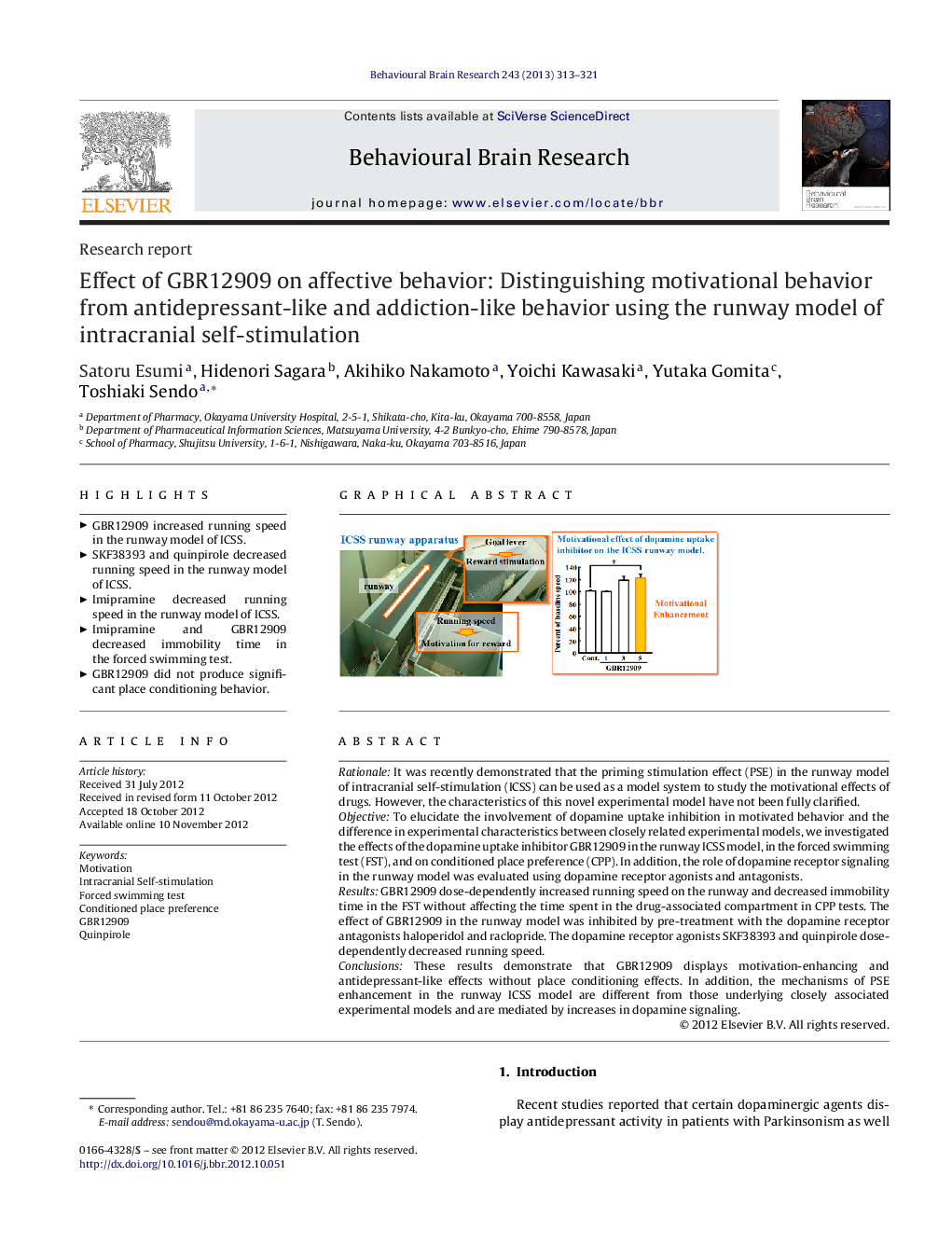| Article ID | Journal | Published Year | Pages | File Type |
|---|---|---|---|---|
| 4312784 | Behavioural Brain Research | 2013 | 9 Pages |
RationaleIt was recently demonstrated that the priming stimulation effect (PSE) in the runway model of intracranial self-stimulation (ICSS) can be used as a model system to study the motivational effects of drugs. However, the characteristics of this novel experimental model have not been fully clarified.ObjectiveTo elucidate the involvement of dopamine uptake inhibition in motivated behavior and the difference in experimental characteristics between closely related experimental models, we investigated the effects of the dopamine uptake inhibitor GBR12909 in the runway ICSS model, in the forced swimming test (FST), and on conditioned place preference (CPP). In addition, the role of dopamine receptor signaling in the runway model was evaluated using dopamine receptor agonists and antagonists.ResultsGBR12909 dose-dependently increased running speed on the runway and decreased immobility time in the FST without affecting the time spent in the drug-associated compartment in CPP tests. The effect of GBR12909 in the runway model was inhibited by pre-treatment with the dopamine receptor antagonists haloperidol and raclopride. The dopamine receptor agonists SKF38393 and quinpirole dose-dependently decreased running speed.ConclusionsThese results demonstrate that GBR12909 displays motivation-enhancing and antidepressant-like effects without place conditioning effects. In addition, the mechanisms of PSE enhancement in the runway ICSS model are different from those underlying closely associated experimental models and are mediated by increases in dopamine signaling.
Graphical abstractFigure optionsDownload full-size imageDownload high-quality image (396 K)Download as PowerPoint slideHighlights► GBR12909 increased running speed in the runway model of ICSS. ► SKF38393 and quinpirole decreased running speed in the runway model of ICSS. ► Imipramine decreased running speed in the runway model of ICSS. ► Imipramine and GBR12909 decreased immobility time in the forced swimming test. ► GBR12909 did not produce significant place conditioning behavior.
